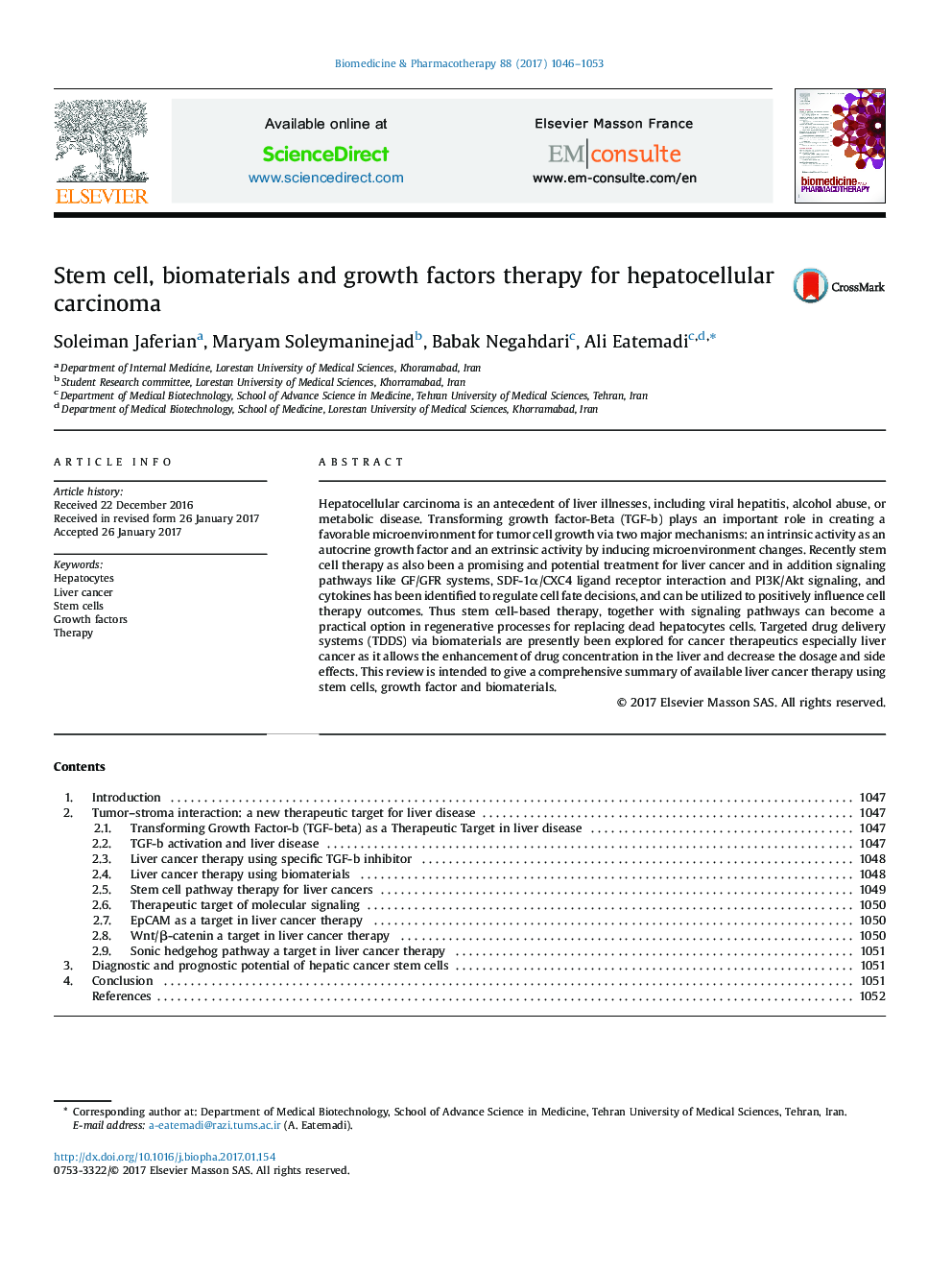| Article ID | Journal | Published Year | Pages | File Type |
|---|---|---|---|---|
| 5553117 | Biomedicine & Pharmacotherapy | 2017 | 8 Pages |
Hepatocellular carcinoma is an antecedent of liver illnesses, including viral hepatitis, alcohol abuse, or metabolic disease. Transforming growth factor-Beta (TGF-b) plays an important role in creating a favorable microenvironment for tumor cell growth via two major mechanisms: an intrinsic activity as an autocrine growth factor and an extrinsic activity by inducing microenvironment changes. Recently stem cell therapy as also been a promising and potential treatment for liver cancer and in addition signaling pathways like GF/GFR systems, SDF-1α/CXC4 ligand receptor interaction and PI3K/Akt signaling, and cytokines has been identified to regulate cell fate decisions, and can be utilized to positively influence cell therapy outcomes. Thus stem cell-based therapy, together with signaling pathways can become a practical option in regenerative processes for replacing dead hepatocytes cells. Targeted drug delivery systems (TDDS) via biomaterials are presently been explored for cancer therapeutics especially liver cancer as it allows the enhancement of drug concentration in the liver and decrease the dosage and side effects. This review is intended to give a comprehensive summary of available liver cancer therapy using stem cells, growth factor and biomaterials.
